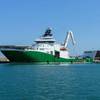Better Together: United Nations Turns 80
The United Nations is celebrating 80 years this year, and this week’s general assembly is meeting under the theme: Better together: 80 years and more for peace, development, and human rights.
The UN Charter was signed on June 26, 1945, and came into force October 24 that year.
From its founding, the United Nations has been at the heart of global cooperation. Highlights include:
• Universal Declaration of Human Rights – 1948
• UN peacekeeping created – 1948
• Eradication of smallpox – 1967 – 1980
• World Conference on Women – 1975
• The Millennium Development Goals – 2000
• The Paris Agreement on Climate Change – 2015
• The Sustainable Development Goals – 2015.
The United Nations stands up for justice and respect for human rights. It documents human rights violations worldwide, advocates for robust human rights protections, promotes compliance with international laws and standards, and supports governments in their reform efforts through work in over 90 countries.
Yet, human rights remain under threat at sea. David Hammond, founder of the NGO Human Rights at Sea, says: “There is no doubt that the emerging human rights at sea narrative and associated incidents which constitute egregious human rights abuses for the assessed 30+ million persons who live, work and transit at sea every day is much developed from its civil society genesis in 2013.
“This has taken time, extensive effort by volunteers, staff, interns, consultants, trustees, and directors, and yet momentum continues at a slow but steady pace much like the UN in terms of due process and diplomatic actions.
“We celebrate the small wins and partnership alignments while constantly dealing with acts of impunity, failures to be held accountable for unlawful behaviors, and the arguable increased erosion of the established rule of law at sea, and on land.”
Initiated and conceived in February 2019 by Hammond, the Geneva Declaration on Human Rights at Sea brings together existing international law into one document. It has now been translated into 13 languages and gives practical guidance to States on how to ensure that human rights abuses at sea are detected, remedied, and ultimately ended.
It is based on four fundamental principles:
• Human rights are universal; they apply at sea, as they do on land.
• All persons at sea, without any distinction, are entitled to their human rights.
• There are no maritime specific reasons for denying human rights at sea.
• All human rights established under both treaty and customary international law must be respected at sea.
“In many respects, the profile of the need for human rights’ protections at sea came to the forefront with the global pandemic crew-change crisis in 2020 in the global maritime industry,” says Hammond. “Only then, did the necessary focus on movement of goods through global maritime supply chains include identification, awareness, and a public realization of the vulnerability of those frontline crew who facilitate daily vessel and goods movements at sea. But realizing this only in 2020 was a failure. We have known about abuses at sea for decades.
“Nonetheless, and much like the extensive scope of UN agency activities, the scope and extent of the need for better human rights’ protections at sea is not simply limited to commercial crew, but it also includes and affects the fundamental rights and living standards of fishermen, coastal communities, migrants and refugees, passengers and those rescued at sea.
“We look forward to seeing what Human Rights at Sea and the associated narrative has achieved when it turns 80 years old.”


















